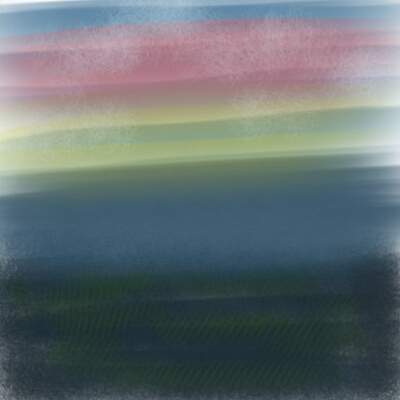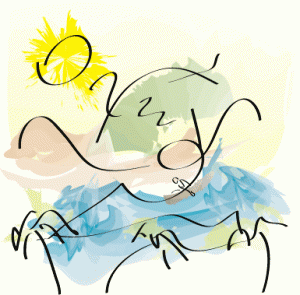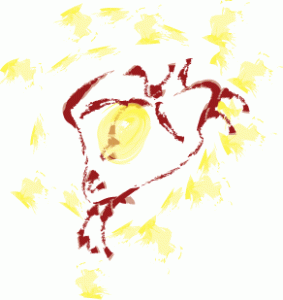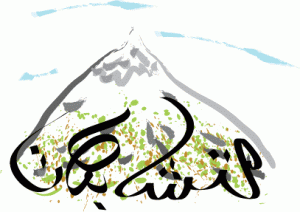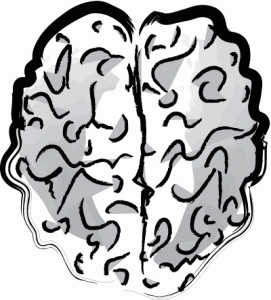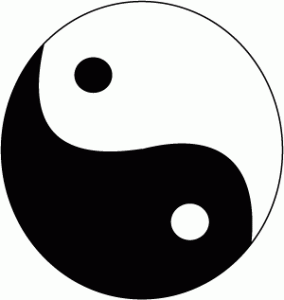
Today’s blog post is about a huge personal breakthrough. Maybe it could help in your journey on God’s path too, so sit back and enjoy 🙂
Life is like a fractal pattern. A fractal pattern is so cool. I know this sounds nerdy, but give me a second because it’s really worth it. A fractal is any pattern that constantly repeats itself, whether you zoom way out, or zoom way in, you see the same pattern again and again. It’s very easy to spot in geometry. For example, if you draw a small circle and keep repeating it over and over, you will end up with a very big circle made up of a bunch of repeated circles within.
The concept of a fractal pattern is harder to see when it comes to our own lives though. Did you know that how you live life in a single day can represent the pattern of how you live your entire life?1 Say that a person blames someone else when they can’t find their socks. Guess what happens when a more major life event occurs, their first reaction is to blame someone else. The pattern always repeats—unless we are honest, acknowledge our mistake, and amend our behavior of course.
Where are fractals in the Quran? They’re in many verses, but we’ll save all the details for another blog post. For now, here’s one verse highlighting the fractal. It’s verse 5:32 and says whoever kills an innocent person it is as if he killed all of mankind, and if he saves an innocent person it is as if he saved all of mankind.
Did you see it? Whether you zoom way out—all of mankind, or zoom way in—just a single person, the pattern is the same!
Well, fractals are all well and good—in fact they’re beyond good since fractals applied to your personal life are some pretty life-changing, breakthrough stuff on their own. You can turn around all the bad habits in your life by stopping the tiny ones you‘re engaged in right now! Told you this was amazing!
What left me in more amazement was to see how fractals apply to iman—the confidence and belief we have in God.
Let’s simplify life down a whole lot. Let’s winnow life down to just two choices: we have the option to doubt or the option to have confidence.
Let’s be scientists here and think about this using all of our experiences as evidence. One option increases difficulty, while the other option increases success. Think about it. When has doubting yourself ever led to success? Now I don’t mean doubting that you can fly off a cliff is a bad thing. I’m saying that doubting yourself, your ability to succeed; having self-doubt because of low self-esteem, this is bad. This choice always leads to difficulty.
Which option will you choose?
We have the choice to think about all of the possible doubts and accomplish nothing, or we have the choice to think about all of the possible positives, as much as we can, and accomplish anything. The choice is ours. Given the two options and the two results, which do you prefer?
To doubt is to increase difficulty in all its forms, always.
To have confidence in is to increase success in all its forms, always.
There are many reasons to doubt but all those reasons are unreasonable in comparison to all the reasons to have confidence.
You can get lost in all the reasons to doubt, admittedly. But if you never compare them to all the reasons to have confidence, you will never realize how unreasonable doubts really are.
This ties in like a fractal pattern to yourself. If you’re a doubtful person, you will also doubt in God. If you are a confident person, you will also be confident in God.2
No matter what happens, no matter how difficult the scenario, you always have trust and confidence in God, just as you always believe in yourself to succeed in any test that God puts you through, or any good undertaking that you apply yourself to. The fractal pattern exists and is hugely beneficial to your personal development! Negativity and all its forms are so closely connected to doubt. Please be positive my brothers my sisters in humanity.
Here is where we see the sickness in the hearts of many materialists. Notice their arguments against God always focus on the world of negatives. They try to increase doubt in themselves and others, but all the while there’s an entire Universe of positives in comparison! We can think about all the positives and be confident in God (and ourselves, his creation), or dwell on the few negatives and doubt God (and ourselves, his creation).
Which option will you choose? To doubt or to be confident?
See you next post, God willing 🙂
Footnotes:
1. We will repeat the bad patterns of behavior in our lives, our bad habits, unless we change them. How we change starts with acknowledging our wrongs:
“Except for those who repent, reform, and make (that reform ) manifest, those are whom I turn toward (in mercy) for I am the Acceptor of Repentance, the Merciful.” (2:160)
By repenting, we acknowledge what we’ve done as wrong and by completing the rest of instructions in the verse, we reform and make that reform manifest. This is how to change the fractal patterns of bad behavior in our lives. You can do it! God will help!
2. If you aren’t aware of how doubting God affects you negatively in a material sense, then consider how it affects your psychological wellness. By doubting God, you have nothing to depend on but the material, dependent world. You become fearful, paranoid, pessimistic, possessive, and so on. You are moved by fear, lust, and all things belonging to your lower, material nature. However, the choice to be confident in God is another reality. It leads to all kinds of success. And in being confident in God, you must be confident in yourself, the creation of God.
Please feel free to share any thoughts.
